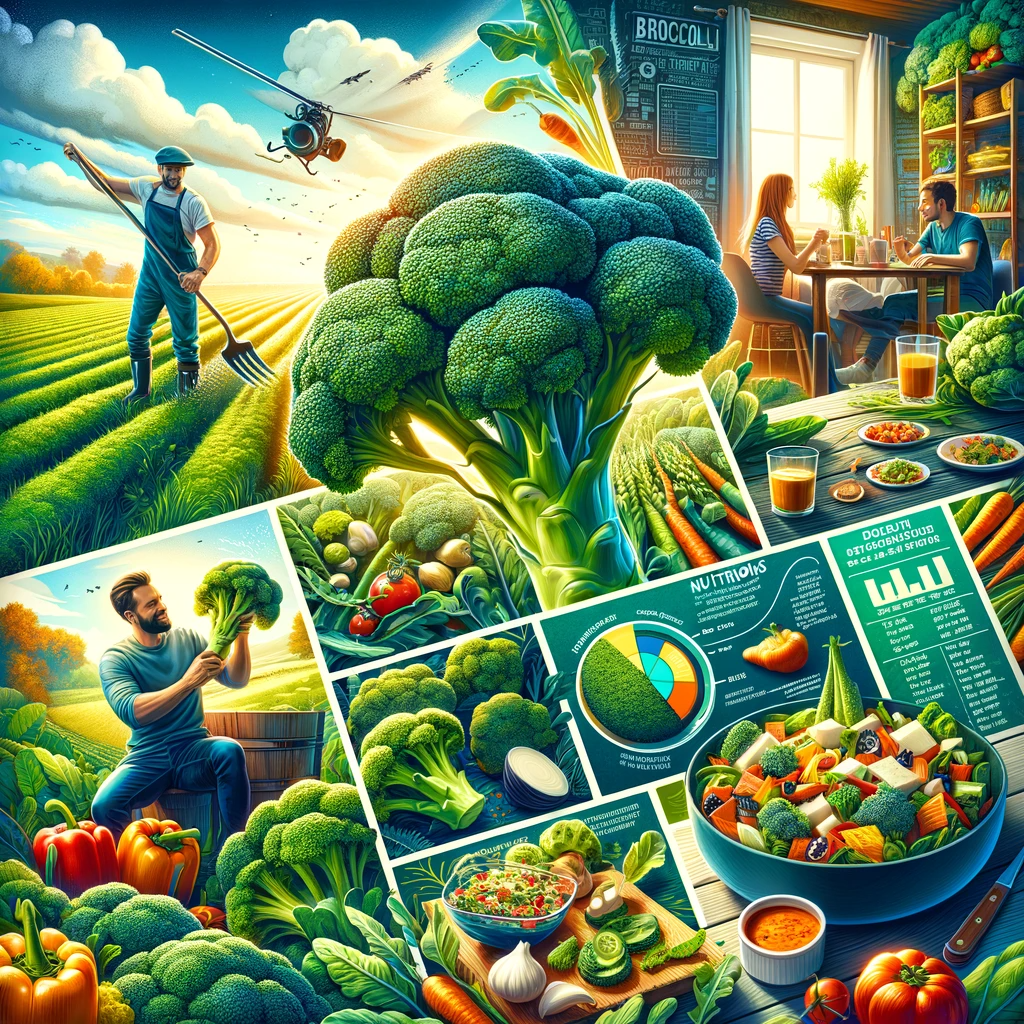Introduction:
In the world of health-conscious eating, low-carb diets have gained immense popularity. People are constantly looking for ways to reduce their carbohydrate intake while still enjoying delicious and nutritious meals. One vegetable that often takes the spotlight in low-carb diets is broccoli. Broccoli is not only low in carbs but also packed with essential nutrients that make it a standout ingredient. In this article, we’ll explore the key ingredients that make broccoli a valuable addition to any low-carb diet.
1. Broccoli’s Low-Carb Profile
Broccoli is a cruciferous vegetable known for its low carbohydrate content, making it a favorite choice among those following low-carb diets. Here’s a breakdown of the carb content in broccoli:
- Per 100g: Broccoli contains only about 6 grams of carbohydrates, making it an excellent choice for individuals aiming to reduce their carb intake.
- Fiber: A significant portion of those carbs comes from dietary fiber, with approximately 2.6 grams of fiber per 100g. Fiber not only aids in digestion but also helps to keep you feeling full and satisfied.
- Net Carbs: Subtracting the fiber content from the total carbohydrates, you’re left with just 3.4 grams of net carbs per 100g of broccoli.
2. Nutrient-Rich Powerhouse
Beyond its low-carb nature, broccoli is a nutritional powerhouse, boasting a range of essential vitamins and minerals that are vital for overall health. Here are some key nutrients found in broccoli:
- Vitamin C: Broccoli is rich in vitamin C, which is crucial for immune function, skin health, and wound healing.
- Vitamin K: This vitamin is essential for proper blood clotting and bone health.
- Vitamin A: Broccoli contains beta-carotene, which the body can convert into vitamin A, benefiting eye health and skin.
- Folate: Important for cell division and DNA synthesis, folate is found in abundance in broccoli.
- Potassium: Broccoli is a good source of potassium, which helps regulate blood pressure and fluid balance.
- Iron and Calcium: Though not as concentrated as in some other foods, broccoli does provide a small amount of iron and calcium, which are essential minerals for overall health.
3. Antioxidant-Rich Compounds
Broccoli is also loaded with antioxidants, which play a crucial role in protecting the body from oxidative stress and preventing chronic diseases. Some of the prominent antioxidants in broccoli include:
- Sulforaphane: This compound has been linked to cancer prevention and may help detoxify the body.
- Quercetin: Known for its anti-inflammatory properties, quercetin can help reduce inflammation in the body.
- Lutein and Zeaxanthin: These antioxidants promote eye health by reducing the risk of age-related macular degeneration.
4. Broccoli and Weight Management
When it comes to weight management, broccoli is a valuable ally for several reasons:
- Low-Calorie: Broccoli is low in calories, allowing you to consume larger portions while keeping your calorie intake in check.
- High Fiber Content: The fiber in broccoli promotes satiety and helps control appetite, making it easier to stick to your low-carb diet.
- Nutrient Density: Broccoli’s rich nutrient content ensures that you get essential vitamins and minerals without the excess calories often found in high-carb foods.
5. Versatile Culinary Applications
One of the reasons broccoli is so popular among low-carb enthusiasts is its versatility in the kitchen. Here are some ways to incorporate broccoli into your low-carb diet:
- Roasted Broccoli: Toss broccoli florets with olive oil, garlic, and your favorite seasonings, then roast until crispy and delicious.
- Broccoli Soup: Make a creamy and satisfying broccoli soup using cauliflower as a low-carb thickening agent.
- Stir-Fries: Add broccoli to your stir-fries for a healthy and crunchy addition.
- Salads: Broccoli can be a star ingredient in salads when paired with ingredients like bacon, cheese, and nuts.
Conclusion
In summary, broccoli is a low-carb superfood that deserves a prominent place in any low-carb diet. With its low carbohydrate content, abundance of essential nutrients, antioxidants, and versatility in the kitchen, broccoli offers a myriad of health benefits. Whether you’re striving for weight management, overall health, or simply a delicious addition to your meals, broccoli can play a crucial role in your low-carb journey. So, next time you plan your low-carb menu, remember to include this green powerhouse on your plate.
